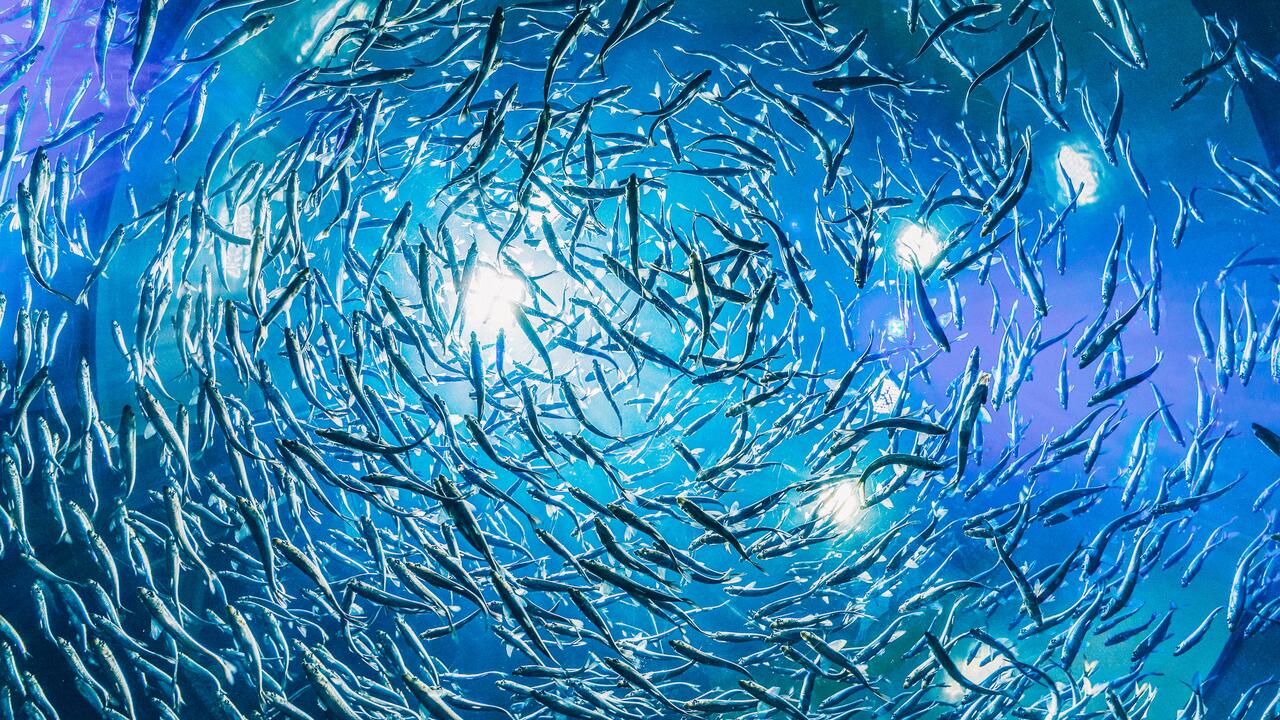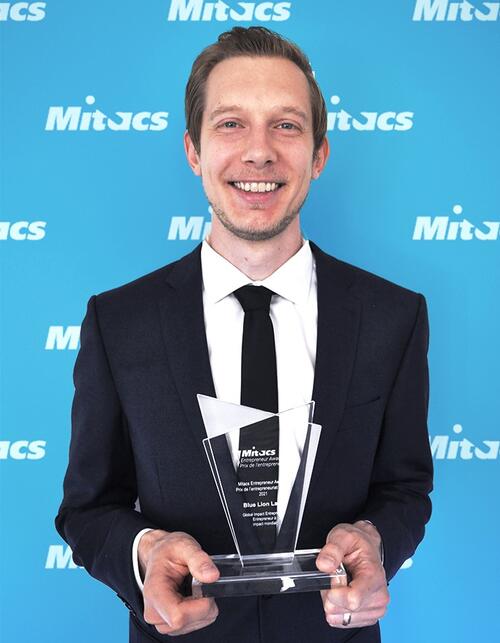
Turning research into commerce
Engineering alumnus recognized for 'first-of-its-kind' AI water testing tech for fish farming

Engineering alumnus recognized for 'first-of-its-kind' AI water testing tech for fish farming
By Brian Caldwell Faculty of EngineeringAn alumnus of Waterloo Engineering who parlayed his graduate research into a startup company that is out to solve worldwide water problems has been recognized by a national innovation organization.
Jason Deglint, a co-founder of Blue Lion Labs, is one of five winners of a Mitacs Entrepreneur Award for turning research into businesses that impact the lives of Canadians.
The honour in the global impact category comes a month after Blue Lion, which was launched in 2018, teamed up with a leading marine technology company in the United Kingdom to develop an imaging system to warn fish farmers of harmful plankton and algae blooms.

Jason Deglint of Blue Lion Labs poses with his Mitacs Entepreneur Award.
OTAQ announced it is investing $300,000 for an approximate 10-per-cent stake in the Waterloo-based company. The partners are aiming to commercialize the technology within the next 18 months.
Deglint (MASc ’16, systems design engineering, PhD ’19, systems design engineering) was described by Mitacs, a non-profit organization backed by federal and provincial governments, as “an up-and-coming entrepreneur” who is advancing “first-of-its-kind technology.”
The system based on his doctoral research combines artificial intelligence (AI) software with a custom digital microscope to automatically detect harmful algae in water.
Current testing methods rely primarily on analysis of water samples at off-site labs and results can take up to a week to obtain.
The technology being developed by Deglint and Blue Lion co-founder Katie Thomas, who has a doctorate in biology from the University of Waterloo, would yield results in minutes and effectively function as an early warning system.
“Essentially, if fish farms want to know what types of organisms are in their water today, the sample ends up on a slide with a human looking at it,” Deglint said in a media release. “It’s a tedious, time-consuming task that’s prone to human error.”
A growing industry, aquaculture represents about a third of the total fisheries value in Canada. Harmful algae blooms are a major source of damage and losses.
Deglint, who worked at Waterloo Engineering as a Mitacs postdoctoral researcher, accepted his award during an online ceremony today.
“Supporting innovation is essential to help Canada rebound from the repercussions of the global pandemic, and Mitacs is extremely proud of the remarkable accomplishments achieved by our network of talented entrepreneurs,” John Hepburn, the CEO and scientific director of Mitacs, said in the release.
Main photo by Harrison Haines from Pexels.

Read more
Here are the people and events behind some of this year’s most compelling Waterloo stories

Read more
Meet the five exceptional graduate students taking the convocation stage as Class of 2024 valedictorians

Read more
The Government of Canada announces funding for discovery and applied research in engineering, natural sciences, health and social sciences
The University of Waterloo acknowledges that much of our work takes place on the traditional territory of the Neutral, Anishinaabeg, and Haudenosaunee peoples. Our main campus is situated on the Haldimand Tract, the land granted to the Six Nations that includes six miles on each side of the Grand River. Our active work toward reconciliation takes place across our campuses through research, learning, teaching, and community building, and is co-ordinated within the Office of Indigenous Relations.